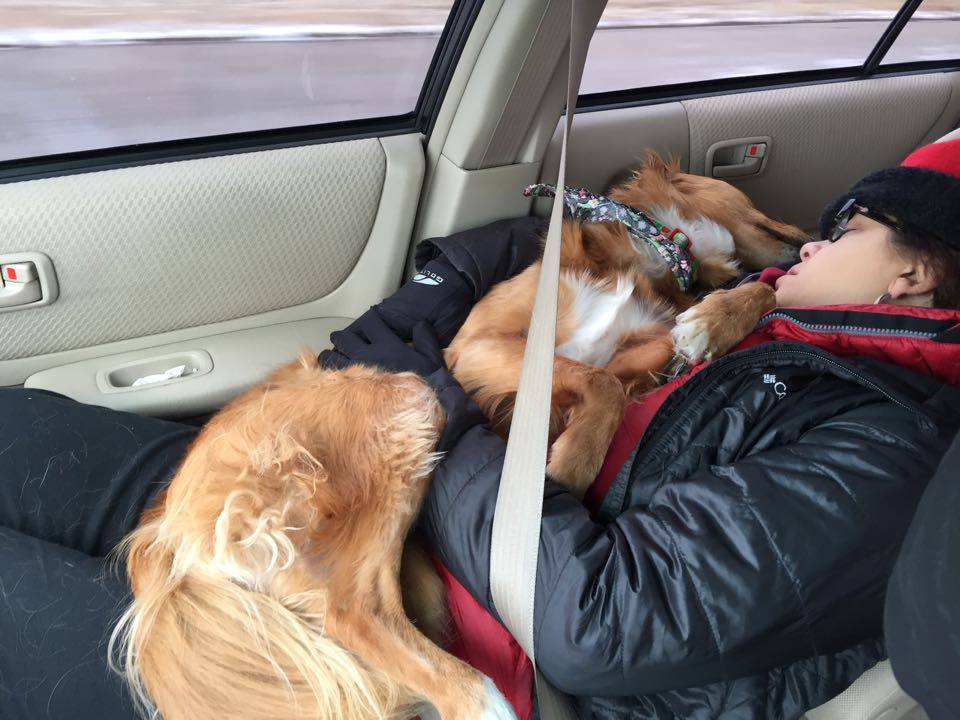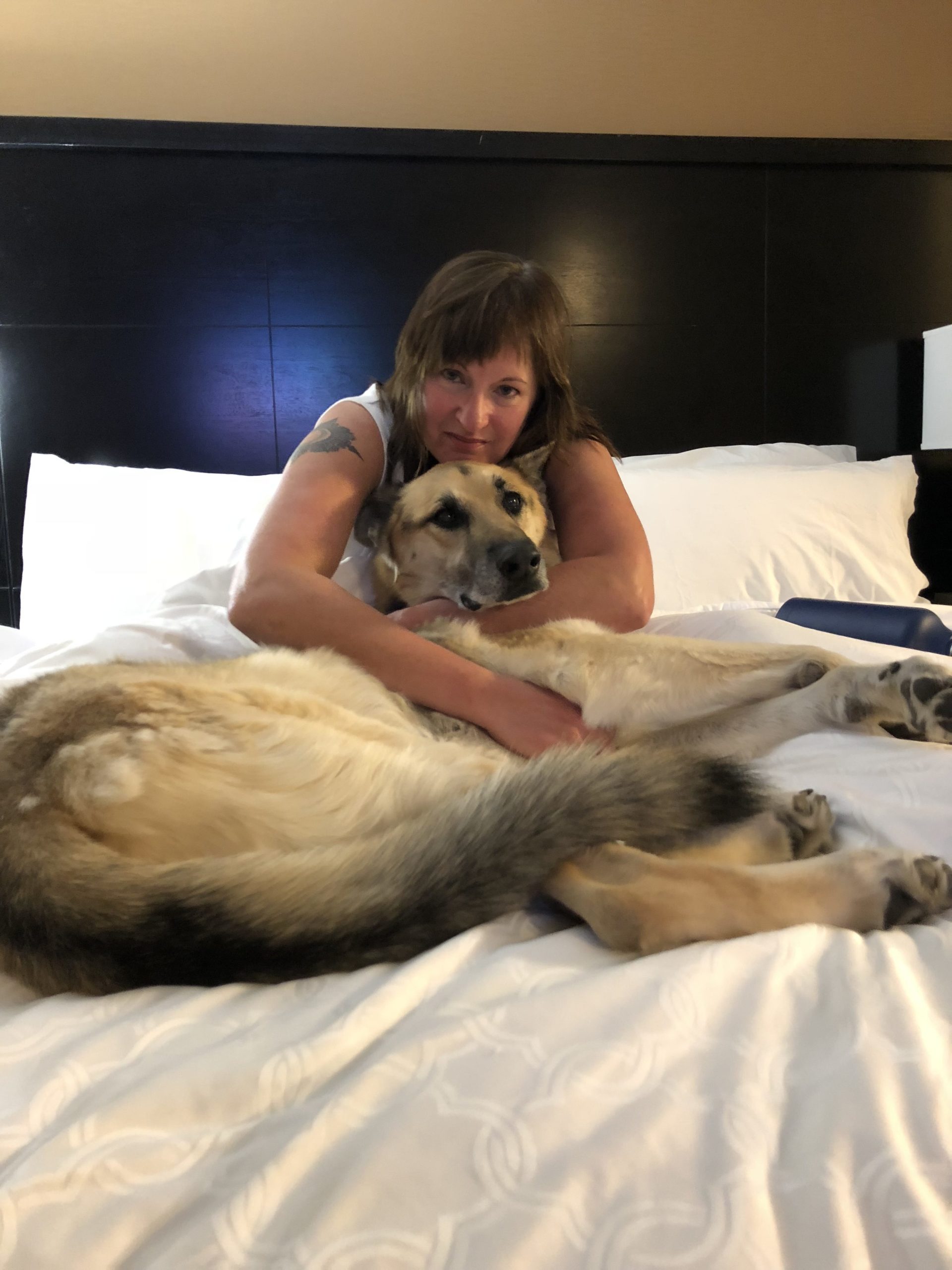When I volunteered on a domestic violence hotline, I was horrified to learn that abusers will threaten to hurt or kill their partner as well as their partner’s loved ones – including pets. In fact, research shows 48 percent of domestic violence survivors have stayed in abusive situations out of fear of what would happen to their pets if they left them behind.
Nathaniel Fields, president and CEO of Urban Resource Institute (URI), a New York-based nonprofit that offers domestic violence services, said both people and pets suffer fear, stress, and anxiety from domestic violence. Sadly, he said that more than 70 percent of survivors report their pet was threatened, harmed, or in some cases, killed.
“One survivor had a cat named Chowder and if she didn’t come back from shopping at a period of time, the abusive partner would call her and say, ‘If you don’t come back right now, I’m going to hurt Chowder. Chowder is in the microwave, if you don’t come back in two seconds, I’m going to turn the microwave on,’” he said. “That’s the sort of example that there’s a threat – Chowder is being used to maintain power and control over the victim – but Chowder is also experiencing that fear of being put in a microwave. So the pets manifest symptoms because they are being traumatized.”

To help humans and pets, URI started the People and Animals Living Safely (PALS) program in 2013 and began opening domestic violence shelters that allow pets – the first in New York to do so. The nonprofit will soon open the country’s largest domestic violence shelter designed for survivors and pets to live together after escaping abuse – PALS Place.
On the national front, URI has found initial bipartisan support for the Pet and Women Safety Act (PAWS) to ensure the U.S. government allows states to fund development of co-living shelters for survivors and their pets, and lobbies for laws to include pets on protective orders. Fields said URI is also providing a blueprint to other domestic violence organizations to create co-living shelters for people and their pets, who he called domestic violence’s “silent victims.”
But there’s a long way to go. Fields noted that only 3 percent of America’s domestic violence shelters currently allow pets.

That’s where fostering comes in.
Myra Rasnick, executive director of Ahimsa House, a Georgia-based nonprofit dedicated to addressing the link between domestic violence and animal cruelty, said the organization has a network of foster homes, boarding facilities, and veterinary offices throughout the state to transport and house pets of people fleeing abuse.
“If someone needs to escape, we can typically get them in within an hour because of a lot of times when people are leaving, it is a time issue,” she said. “In 2017 we helped 161 people escape violence with their 283 pets.”
While most requests involve cats and dogs, the group has also fostered birds, rats, reptiles, rabbits, and horses. She’s profoundly moved when clients say things like, “Without your help, not only would my dog not have gotten out, but neither would I … Your services helped save both of our lives.”
Ahimsa House helps pay for veterinary care for animals physically injured by domestic violence. The nonprofit also provides a network of positive-reinforcement trainers who foster pets who have developed fear-based behavior due to abuse, such as hiding from men or reacting to them by growling, lunging, or biting.
“The trainers work with them to help with the behavior so that when they do go home, they’re more adjusted – they’ve had time to heal,” she said. “It’s amazing that pets are so resilient.”
For more information, or to donate or volunteer, please visit: http://urinyc.org/program/uripals/ or http://ahimsahouse.org/.
Do you need help escaping domestic violence with your pet?
- If you are in a life-threatening emergency, call 911
- For safety planning for you and your pet, call the National Domestic Violence Hotline: 1-800-799-7233 or visit: https://www.thehotline.org/
- To search by zip code for nearby safe havens for your pet, visit the Animal Welfare Institute’s Safe Havens web page: https://awionline.org/safe-havens
- For tips about planning to escape with pets or for services in New York, visit the Urban Resource Institute at: http://urinyc.org/program/uripals/
- If you are in Georgia, call Ahimsa House’s 24-hour hotline at 404-452-6248 or visit: http://ahimsahouse.org.
- Know that you are not alone – many people want to help you and your pets find safety!
Freelance journalist Jen Reeder is president of the Dog Writers Association of America.
This article was reviewed/edited by board-certified veterinary behaviorist Dr. Kenneth Martin and/or veterinary technician specialist in behavior Debbie Martin, LVT.








